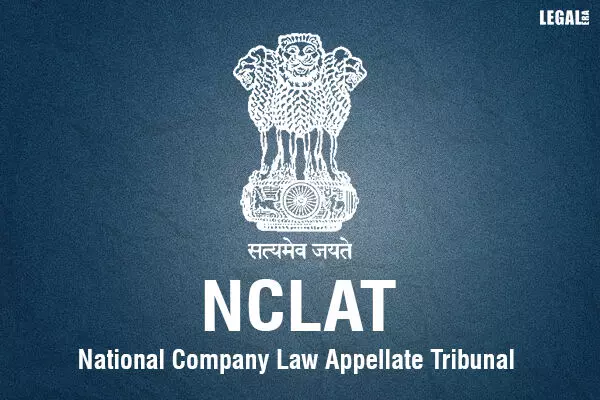- Home
- News
- Articles+
- Aerospace
- Artificial Intelligence
- Agriculture
- Alternate Dispute Resolution
- Arbitration & Mediation
- Banking and Finance
- Bankruptcy
- Book Review
- Bribery & Corruption
- Commercial Litigation
- Competition Law
- Conference Reports
- Consumer Products
- Contract
- Corporate Governance
- Corporate Law
- Covid-19
- Cryptocurrency
- Cybersecurity
- Data Protection
- Defence
- Digital Economy
- E-commerce
- Employment Law
- Energy and Natural Resources
- Entertainment and Sports Law
- Environmental Law
- Environmental, Social, and Governance
- Foreign Direct Investment
- Food and Beverage
- Gaming
- Health Care
- IBC Diaries
- In Focus
- Inclusion & Diversity
- Insurance Law
- Intellectual Property
- International Law
- IP & Tech Era
- Know the Law
- Labour Laws
- Law & Policy and Regulation
- Litigation
- Litigation Funding
- Manufacturing
- Mergers & Acquisitions
- NFTs
- Privacy
- Private Equity
- Project Finance
- Real Estate
- Risk and Compliance
- Student Corner
- Take On Board
- Tax
- Technology Media and Telecom
- Tributes
- Viewpoint
- Zoom In
- Law Firms
- In-House
- Rankings
- E-Magazine
- Legal Era TV
- Events
- Middle East
- Africa
- News
- Articles
- Aerospace
- Artificial Intelligence
- Agriculture
- Alternate Dispute Resolution
- Arbitration & Mediation
- Banking and Finance
- Bankruptcy
- Book Review
- Bribery & Corruption
- Commercial Litigation
- Competition Law
- Conference Reports
- Consumer Products
- Contract
- Corporate Governance
- Corporate Law
- Covid-19
- Cryptocurrency
- Cybersecurity
- Data Protection
- Defence
- Digital Economy
- E-commerce
- Employment Law
- Energy and Natural Resources
- Entertainment and Sports Law
- Environmental Law
- Environmental, Social, and Governance
- Foreign Direct Investment
- Food and Beverage
- Gaming
- Health Care
- IBC Diaries
- In Focus
- Inclusion & Diversity
- Insurance Law
- Intellectual Property
- International Law
- IP & Tech Era
- Know the Law
- Labour Laws
- Law & Policy and Regulation
- Litigation
- Litigation Funding
- Manufacturing
- Mergers & Acquisitions
- NFTs
- Privacy
- Private Equity
- Project Finance
- Real Estate
- Risk and Compliance
- Student Corner
- Take On Board
- Tax
- Technology Media and Telecom
- Tributes
- Viewpoint
- Zoom In
- Law Firms
- In-House
- Rankings
- E-Magazine
- Legal Era TV
- Events
- Middle East
- Africa
NCLAT Upholds Resolution Plan Allowing NIL Payments To Operational Creditors In Liquidation

NCLAT Upholds Resolution Plan Allowing NIL Payments To Operational Creditors In Liquidation
The National Company Law Appellate Tribunal (NCLAT) upheld a resolution plan that proposed zero payments to operational creditors in the event of liquidation. This decision reaffirmed the tribunal's ruling in the case of Rajat Metaal Polychem Pvt. Ltd. v. Mr. Neeraj Bhatia and Anr., emphasizing that such plans can proceed without exception as long as they comply with Section 30(2)(b) of the Insolvency and Bankruptcy Code (IBC), 2016.
The Corporate Insolvency Resolution Process (CIRP) against the corporate debtor began on June 23, 2023. An operational creditor, Sri Balaji Facility, submitted a claim of ₹16,77,047 on October 19, 2023, which was admitted by the Resolution Professional. A resolution plan was presented and subsequently approved by the Committee of Creditors (CoC) with a substantial majority of 92.87%. The Resolution Professional then filed application IA No. 5826 of 2023 for the approval of this plan, which was granted by the Adjudicating Authority on May 2, 2024, prompting the current appeal from Sri Balaji Facility.
The NCLAT highlighted that the total claim of the operational creditor admitted during the CIRP amounted to ₹9,54,85,539. However, the approved resolution plan stipulated no payments to operational creditors, including amounts owed to government entities.
The tribunal referenced Section 30(2) of the IBC, indicating that operational creditors are entitled to at least the amount they would receive in the event of liquidation under Section 53.
In its judgment, the NCLAT cited the Rajat Metaal Polychem Pvt. Ltd. v. Mr. Neeraj Bhatia and Anr. case, where it was determined that operational creditors might not receive any payment if the liquidation amount owed to them is nil. The tribunal remarked, “It is true that operational creditors, as the law stands now, are denied any payment when the amount payable to them in the event of liquidation is NIL, but till the Legislature comes to the aid of the claim of operational creditors by amending the legislative scheme, the hands of the courts are tied to take any other view in the matter.”
In conclusion, the appeal was dismissed, affirming the tribunal's stance on the matter.



